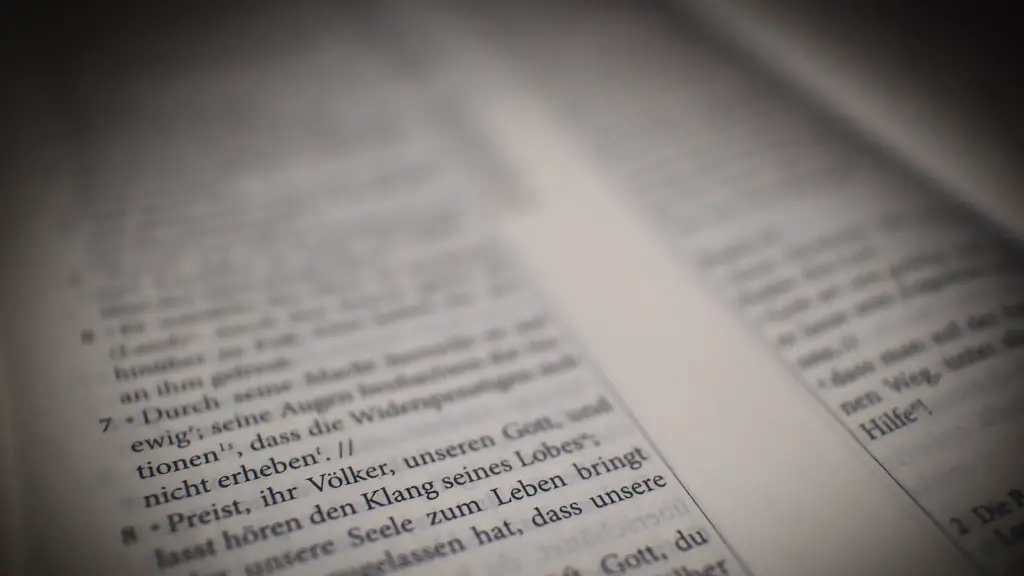Bildad was one of Job’s so-called friends who came to comfort him after Job had lost all his material possessions. Bildad was, like the other friends, certain that Job’s misfortune must be due to some sin he had committed and urged him to repent and turn to God.
Bildad was one of Job’s friends who came to comfort him after he lost everything.
Who does Bildad represent?
Bildad, also spelled Baldad, is one of the three principal comforters of Job in the Old Testament. He is introduced in Job 2:11 as a Shuhite, probably a member of a nomadic tribe dwelling in southeastern Palestine. Bildad’s arguments with Job reveal him to be a sage who looks to the authority of tradition.
Bildad was the first to attribute Job’s calamity to actual wickedness, albeit indirectly, by accusing his children (who were destroyed, Job 1:19) of sin to warrant their punishment (Job 8:4) His brief third speech, just five verses in length, marked the silencing of the friends.
What’s the meaning of Bildad
Bildad was a name given to a male character in the Bible. The name Bildad is thought to mean “old friendship.”
It is not uncommon for friends and family to support someone who is going through a tough time. However, there may come a point where they feel the need to speak up. In this case, they are saying that the person’s trials are a result of their own sin. This can be a difficult thing to hear, but it is important to remember that everyone is entitled to their own opinion.
How did bildad misunderstand God’s justice?
It is true that God does not pervert justice, and what happened to Job’s children is evidence of that. However, we must remember that we do not always know the reason why things happen, and we should not presume to know the mind of God.
When the three friends of Job saw him from a distance, they scarcely recognized him. This was likely due to the fact that Job was covered in sores and his body was emaciated. The three friends were named Eliphaz the Temanite, Bildad the Shuhite, and Zophar the Naamathite.
What was Job’s complaint against God?
Job complains that God has no good reason for permitting the evil that befalls him. He believes that God doesn’t have a good reason because he, Job, can’t imagine what that reason might be. Job is wrong. God does have a good reason, even if Job can’t imagine what it might be.
The point of the book of Job seems to be that God is ultimately in control of the universe, even though it may not always seem that way. Job had to suffer through some very tough times, but he never wavered in his belief that God was ultimately good and just.
What did Job’s wife want him to do
There is some debate over the meaning of this phrase in the book of Job. The traditional interpretation is that she is urging Job to curse G-d, that the use of the term “Baruch Elokim” is a colloquial expression for “Curse G-d”. However, some scholars believe that she is actually praising G-d, and that the phrase is meant to be read as “Blessed be G-d”.
Job is known as Jobab in the Greek translation of the Hebrew Bible, the Septuagint. This is also the name used in the oldest English-language Catholic Bible, the Douay-Rheims. Job was a righteous man who was tested by God and found to be faithful. He is an example of patience and endurance, and his story is an encouragement to all who suffer.
How many children did Job’s wife have?
Dinah was the mother of seven (or fourteen) sons and three daughters, all of whom were born to her husband, Job. Job was a very wealthy man, and his children were his pride and joy. However, tragedy struck when all of his sons and daughters were killed in a freak accident. Job was devastated, and he blamed God for their deaths. He demanded that God give him an explanation, but God did not answer him. Finally, Job came to accept that his children were gone and that he would never know why they had died.
Job is a biblical figure who is said to have lived during the time of the Patriarchs. He is described as a righteous man who was beset by misfortune but remained steadfast in his faith. Job is venerated by Jews, Christians, Muslims, and Druze.
What does the story of Job teach us
The book of Job is a great example of how God can restore us when we go through tough times. Even though Job went through a lot of pain and suffering, he was still able to maintain his faith in God. This is a great reminder for us that no matter what happens in life, God is always there for us and will never forsake us.
This is a note on the topic of seven days.
Job’s friends came to check on him and they did exactly as they should have. They wept with him, refrained from voicing useless platitudes, and sat with him in his misery, in silence for seven days. This showed true compassion and care for their friend. Job appreciated this immensely.
During this time of silent companionship, Job was able to process his grief and start to heal. This is a testimony to the power of simply being there for someone who is grieving. Sometimes, words are not necessary. Just being present can be a great comfort.
What is the main message of the book of Job in the context of suffering?
The book of Job is one of the oldest books in the Bible, and its central theme is the eternal problem of unmerited suffering. Job was a righteous man who was struck down with terrible sufferings, and he tried to understand why this happened to him. The book is full of wisdom and insight, and it is still relevant today as we try to make sense of the sufferings that come into our lives.
The story of Job is one that is relatable to many people. Job was a man who was committed to God and yet he still suffered greatly. This story reminds us that even if we are good people, we can still suffer. It also teaches us that we need to be patient and trust in God even when things are tough.
Final Words
Bildad was one of Job’s friends who, along with Eliphaz and Zophar, came to sympathize with him after he had lost all his children and possessions.
Bildad was one of Job’s friends who, along with Eliphaz and Zophar, came to comfort him after he had lost everything. Bildad was the most stern and blunt of the three, often accusing Job of sinning and insisting that his suffering was a result of his own wrong-doing. In the end, however, Bildad realizes that he was wrong and that Job was a righteous man who did not deserve the suffering that he had endured.





